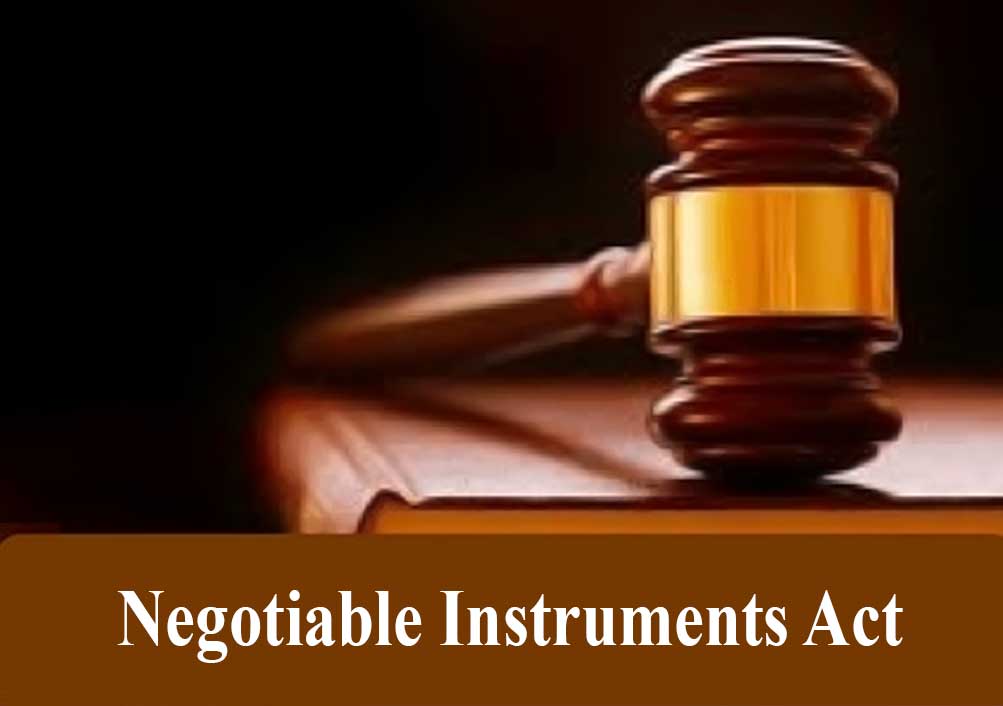In SUO MOTU WRIT (CRIMINAL) NO.2 OF 2020-SC- 25 Special Courts under NI Act to be constituted for testing pilot project to tackle high pendency of cheque bounce cases, directs Apex Court Justices L.Nageswara Rao, B.R.Gavai and S.Ravindra Bhat [19-05-2022]

Read Judgment:IN RE: EXPEDITIOUS TRIAL OF CASES UNDER SECTION 138 OF N.I. ACT 1881
Tulip Kanth
New Delhi, May 21, 2022: Considering the high pendency of over 33 lakh NI Act cases, the Supreme Court has directed the constitution of Special Magistrates Courts for conducting trial of cases under the Negotiable Instruments Act, 1881 so that the pilot study to test the scheme of employing retired judicial officers and retired court staff to operationalise the Special Courts under the NI Act can be conducted for a duration of 1 year.
The Larger Bench of Justice L.Nageswara Rao, Justice B.R.Gavai and Justice S.Ravindra Bhat took note of the fact that as per the data available on November 8, 2021, NI Act cases contribute to 8.81% of the total criminal cases pending in the courts and 11.82% of the total criminal cases that are stagnating due to appearance/service related issues are NI Act cases. Thus, the Bench held that the pilot study shall be conducted in 25 Special Courts in total and one Special Court shall be established in each of the 5 judicial districts in the States of Maharashtra, Rajasthan, Gujarat, Delhi and Uttar Pradesh which have been identified as having the highest pendency of NI Act cases.
These directions came as a consequence of the judgment of the Constitution Bench of this Court in Re: Expeditious Trial of Cases under Section 138 of N.I. Act, 1881 wherein various directions were issued with respect to the conduct of trials of complaints under Section 138 of the Negotiable Instruments Act. When the Expert Committee was set up, it was suggested that the establishment of the special NI ourts would require recruitment of 1,826 special judicial officers and a total cost of Rs 126.59 crores. The Amicus had put forth the option of appointing retired judicial/administrative officers who have worked and discharged quasi-judicial functions as Special Judicial/Metropolitan Magistrates for a fixed pay.
Thus, keeping the high pendency of cases and the suggestions in view, the Bench directed that the pilot study would be conducted for a duration of 1 year from September 1, 2022 to August 31, 2023. For operationalising the Special Courts under this pilot study, retired judicial officers and retired court staff, preferably those who have retired within the past 5 years, can be employed.
The Apex Court has also clarified that the Special Courts shall adjudicate upon only those cases in which summons have been duly served and the accused has entered appearance through a lawyer or in person. The oldest pending cases in which service of summons is complete must be identified in a chronological manner (oldest first) and it has to be ensured that no case where service of summons is incomplete is sent to the Special Courts.
Hence, putting a list of guidelines pertaining to the various details of the pilot project and provisions of duration, number of courts, Officers to be appointed, Mediation procedure, timelines, pay structure, type of Cases, data collection etc, the Top Court directed the Secretary General to ensure that a copy of this order was directly communicated to the Registrar Generals of the said five High Courts, who shall place it before the Chief Justice for immediate action.
Sign up for our weekly newsletter to stay up to date on our product, events featured blog, special offer and all of the exciting things that take place here at Legitquest.




Add a Comment